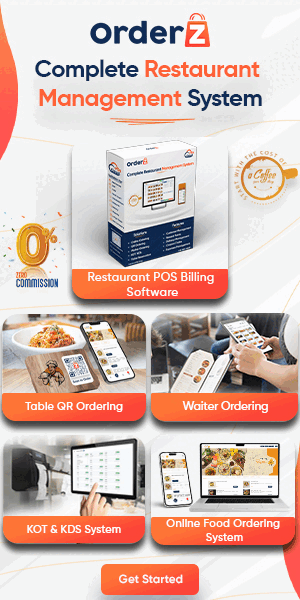Introduction
The grocery landscape in Singapore is undergoing a dramatic transformation. Gone are the days of obligatory grocery store visits and battling crowded aisles. Embracing the digital revolution, Singaporean consumers are increasingly turning to the convenience and efficiency of online grocery shopping. This trend is fueled by a tech-savvy population and a growing desire for a seamless shopping experience.
A Market Poised for Growth:

Statistics paint a clear picture: the online grocery market in Singapore is on a meteoric rise.
According to a (source – Singapore e-commerce grocery market report), the market is projected to reach a staggering SGD 1.5 billion by 2025. This translates to a remarkable growth rate exceeding 20% year-on-year.
Convenience Reigns Supreme:
Studies by (source – Singapore online shopper survey) reveal that over 75% of Singaporean households now incorporate online grocery shopping into their routine, with a significant portion opting for complete online purchases delivered directly to their doorsteps. This highlights the increasing preference for convenience and time-saving solutions.
The Power of E-commerce Platforms:

Platforms like orderz.sg, a user-friendly e-commerce store builder, are empowering entrepreneurs and established businesses alike to capitalize on this flourishing market. With features specifically designed for online grocery stores, orderz.sg simplifies the process of creating a visually appealing and functional online store, allowing businesses to showcase their products and streamline the customer journey.
A Roadmap to Online Grocery Success:

This blog serves as your comprehensive guide to navigating the exciting world of online grocery sales in Singapore. We’ll delve into the essential steps involved, from market research and niche selection to building your online store, crafting a winning marketing strategy, and prioritizing exceptional customer service. By following these steps and continuously adapting to the evolving market, you can unlock the immense potential of the online grocery space in Singapore. So, buckle up and get ready to explore the exciting world of click-and-collect kitchens and the thriving online grocery market in Singapore!
Benefits of Selling Groceries Online

Before diving in, let’s explore the compelling advantages of venturing into the online grocery space:
Reaching a Wider Audience: Shatter geographical limitations and tap into a nationwide customer base. Your online store can cater to busy professionals, families with limited time, and those residing in areas with fewer physical grocery options.
Reduced Overhead Costs: Eliminate the hefty costs associated with running a brick-and-mortar store, such as rent, utilities, and staffing for a large physical space. This translates to potentially higher profit margins and the ability to offer competitive prices to your customers.
Scalability Made Simple: Growing your online grocery business is a breeze. Unlike a physical store with limited space, your online store can easily accommodate a wider product variety and cater to an expanding customer base without needing additional infrastructure.
Data-Driven Decisions: The online world offers a treasure trove of customer data. Utilize website analytics tools to gain valuable insights into customer behavior, purchasing habits, and popular product categories. This empowers you to make informed decisions about inventory management, promotions, and overall business strategies.
24/7 Availability: The beauty of online retail is its constant accessibility. Your virtual grocery store is always open, allowing customers to browse and purchase groceries at their convenience, day or night.
Understanding the Regulatory Landscape

The good news? Selling food online in Singapore is generally permissible. The Singapore Food Agency (SFA) clarifies that e-commerce platforms acting as intermediaries between online food sellers and customers don’t require a license [Source: SFA | Online Food Retail Businesses].
However, it’s crucial to ensure compliance with relevant regulations:
Food Safety: Implement stringent quality control measures and adhere to proper food storage and handling practices.
Consumer Protection: Establish clear terms and conditions, a transparent return policy, and secure online payment options.
7 Steps to Launching Your Online Grocery Business in Singapore
1. Market Research and Niche Selection:

Conduct thorough market research to understand consumer needs, popular grocery categories (fresh produce, pantry staples, etc.), and existing competition.
Identify a niche market – organic groceries, international food items, or focus on specific dietary needs (gluten-free, vegan, etc.)
2. Sourcing and Inventory Management:

Establish relationships with reliable suppliers and wholesalers to ensure a steady supply of fresh and high-quality groceries.
Develop a robust inventory management system to prevent stockouts and maintain efficient order fulfillment.
3. Building Your Online Store:

Choose a user-friendly e-commerce platform like OrderZ, Shopify or WooCommerce to build your online grocery store.
Ensure a clear and intuitive layout with well-defined categories, high-quality product images, and detailed descriptions.
Integrate secure online payment gateways trusted by Singaporean consumers (e.g., PayNow, GrabPay).
4. Logistics and Delivery:

Offer various delivery options to cater to customer needs – express delivery, scheduled delivery slots, or potential partnerships with established delivery companies.
Maintain transparent delivery costs and communicate lead times effectively.
5. Marketing and Customer Acquisition:

Leverage social media marketing (Facebook, Instagram) to showcase your grocery offerings and run targeted advertising campaigns.
Consider collaborating with food bloggers or influencers for increased brand awareness.
Explore search engine optimization (SEO) strategies to improve your online store’s ranking in search results for relevant keywords.
6. Exceptional Customer Service:

Prioritize prompt and courteous customer service. Respond quickly to inquiries, address concerns efficiently, and ensure a smooth shopping experience.
Implement a user-friendly return policy for damaged or unsatisfactory groceries.
7. Continuously Adapt and Improve:

Regularly analyze customer data and feedback to identify areas for improvement.
Stay updated on evolving trends in online grocery shopping and adapt your offerings accordingly.
Explore loyalty programs and promotional offers to retain customers and attract new ones.
Read: How to start a bakery business in Singapore
Conclusion: A Thriving Market Awaits
The online grocery market in Singapore is brimming with potential. By following these steps, combined with a strategic approach and unwavering commitment to customer satisfaction, you can navigate this exciting landscape and establish a successful online grocery business. Remember, the key lies in understanding your target audience, offering a convenient and reliable service, and continuously refining your approach to stay ahead of the curve.




